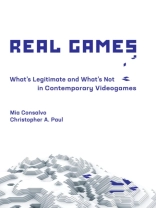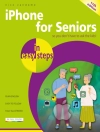How we talk about games as real or not-real, and how that shapes what games are made and who is invited to play them.In videogame criticism, the worst insult might be "That’s not a real game!" For example, "That’s not a real game, it’s on Facebook!" and "That’s not a real game, it’s a walking simulator!" But how do people judge what is a real game and what is not-what features establish a game’s gameness? In this engaging book, Mia Consalvo and Christopher Paul examine the debates about the realness or not-realness of videogames and find that these discussions shape what games get made and who is invited to play them.Consalvo and Paul look at three main areas often viewed as determining a game’s legitimacy: the game’s pedigree (its developer), the content of the game itself, and the game’s payment structure. They find, among other things, that even developers with a track record are viewed with suspicion if their games are on suspect platforms. They investigate game elements that are potentially troublesome for a game’s gameness, including genres, visual aesthetics, platform, and perceived difficulty. And they explore payment models, particularly free-to-play-held by some to be a marker of illegitimacy. Finally, they examine the debate around such so-called walking simulators as Dear Esther and Gone Home. And finally, they consider what purpose is served by labeling certain games "real."
Mia Consalvo & Christopher A. Paul
Real Games [PDF ebook]
What’s Legitimate and What’s Not in Contemporary Videogames
Real Games [PDF ebook]
What’s Legitimate and What’s Not in Contemporary Videogames
Mua cuốn sách điện tử này và nhận thêm 1 cuốn MIỄN PHÍ!
Ngôn ngữ Anh ● định dạng PDF ● Trang 224 ● ISBN 9780262353625 ● Nhà xuất bản The MIT Press ● Được phát hành 2019 ● Có thể tải xuống 3 lần ● Tiền tệ EUR ● TÔI 8184344 ● Sao chép bảo vệ Adobe DRM
Yêu cầu trình đọc ebook có khả năng DRM












